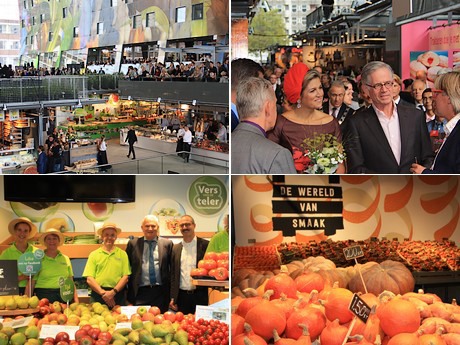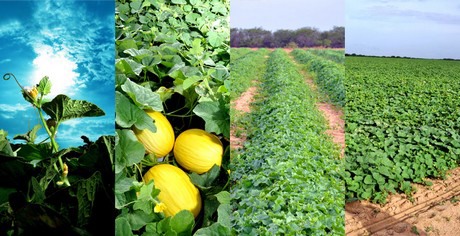
October was a month of 'will they or won't they' when it came to the proposed Chiquita merger with Fyffes. It had seemed that the merger would be relatively smooth sailing, until the news surfaced that shareholders had delayed the vote as EU backs Fyffes merger. The proposed $1 billion banana company merger between Fyffes and its US rival Chiquita Brands faced a new threat, after shareholders in the US company lodged a class-action lawsuit attempting to scupper the merger. Chiquita again recommended that shareholders back a tie-up with Fyffes. The board of Chiquita Brands International said that the takeover bid by Brazilian juice maker Grupo Cutrale and investment firm Safra Group was "inadequate". Cutrale-Safra responded by increasing their offer to acquire Chiquita Brands International Inc. to $742 million, boosting their bid to $14.50 per share. The shareholders at Chiquita, subsequently, announced the rejection of the Fyffes deal and announced that Chiquita Brands International would begin negotiations for the acquisition by the Cutrale and Safra Group. By the end of the month, Chiquita Brands International and the two Brazilian companies announced that they had reached a deal for the Brazilians to acquire the banana producer.

On October 1st in Rotterdam, Queen Maxima opened the first covered fresh market hall in the Netherlands. It was bustling with activity both inside and outside the building. Maxima was welcomed by all who were present with the song 'Dit kan alleen in Rotterdam.' (This is only possible in Rotterdam).
 Once Zespri was cleared of one lawsuit, they were faced with a kiwi growers' class action lawsuit back in October. Zespri chairman, Peter McBride urged growers not to back the kiwi claim. He said, "I am extremely concerned that ‘The Kiwifruit Claim’ lacks transparency and fails to properly communicate the uncertainties surrounding the claim." Shortly after the filing of the kiwifruit disease lawsuit against the Government was announced, it was delayed. The group behind the legal action wanted to make sure its position was watertight. Spokesperson for the Kiwifruit Claim, Matthew Hooton said that scaremongering by kiwifruit industry leaders is one of the chief reasons the Psa compensation claim against the government is on hold until next month. Zespri denied using scare tactics.
Once Zespri was cleared of one lawsuit, they were faced with a kiwi growers' class action lawsuit back in October. Zespri chairman, Peter McBride urged growers not to back the kiwi claim. He said, "I am extremely concerned that ‘The Kiwifruit Claim’ lacks transparency and fails to properly communicate the uncertainties surrounding the claim." Shortly after the filing of the kiwifruit disease lawsuit against the Government was announced, it was delayed. The group behind the legal action wanted to make sure its position was watertight. Spokesperson for the Kiwifruit Claim, Matthew Hooton said that scaremongering by kiwifruit industry leaders is one of the chief reasons the Psa compensation claim against the government is on hold until next month. Zespri denied using scare tactics.
Things were picking up on the other side of the world where it was reported that Brazil expected a good melon season, despite drought. Argentina, another country in the southern hemisphere, reported that cherry exports would increase by 50%. The season was set to be crucial for the Argentina, who had weather problems and a low level of exports in 2013.
Despite hail storms, South Africa predicted good grape season. South Africa's table grape crop was expected to be up on last season by 4-7%. Last season the country had to deal with adverse weather which affected volumes, this season's volumes were more online with the volumes from the 2012/13 season and were expected to be boosted by new planting coming into production. A tough citrus season was coming to an end. Total citrus exports to Europe which were affected by the Citrus Black Spot issue, and were down 14%. Both Valencia and navel volumes decreased by 14%, while grapefruit volumes decreased by 33%. Soft citrus volumes to the EU increased slightly (2%) while lemon volumes increased by 29% (in 2013 very little lemons were exported to EU). The total volume of South African citrus exports to all markets was down just 3%.

In Europe, Pink Lady® was back on the shelves with a promising season ahead.
The harvest was in full swing and promised to be fruitful with an expected stock of 150,000 tons, a 19% increase compared with last year. The climate was particularly mild this autumn, which delayed the start of the harvest to allow the apples to colour. All three European production areas -France, Italy and Spain- began harvesting at the end of week 43 and the beginning of week 44, depending on the territory.

